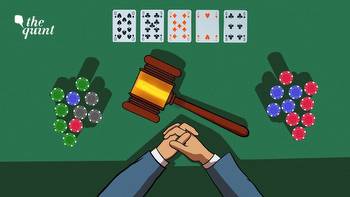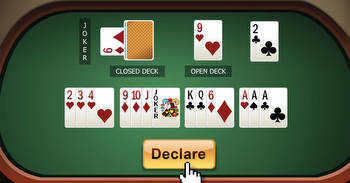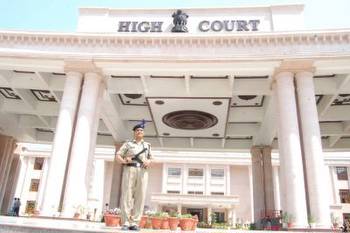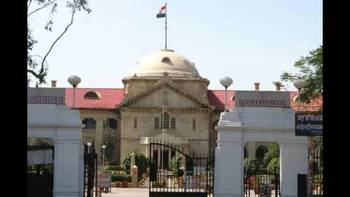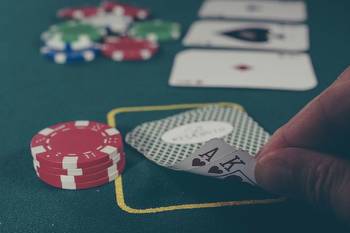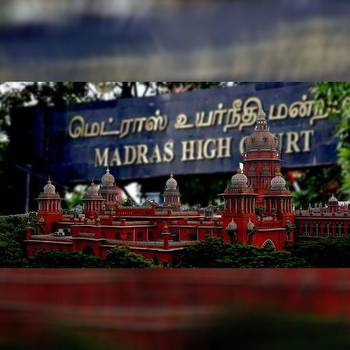State government responsible to take action on online gambling websites: Centre to HC
 State government responsible to take action on online gambling websites: Centre to HC
State government responsible to take action on online gambling websites: Centre to HCoutlookindia.com
1970-01-01T05:30:00+0530New Delhi, Aug 25 (PTI) The Centre has told the Delhi High Court that it is the state government which is responsible for taking action on online gambling websites and the Ministry of Electronics and Information Technology (MEITY) is not authorized to direct any intermediary to block such sites.The Centre’s affidavit was filed before a bench of Chief Justice D N Patel and Justice Jyoti Singh which was hearing a petition seeking directions to the Ministry of Finance, MEITY and Delhi government to take steps to ban websites which are involved in gambling, betting and wagering.
The court, which listed the matter for further hearing on October 11, orally observed that online gambling is dangerous and websites earning cannot be at the cost of youngsters.
The plea said despite there being laws enacted by various states prohibiting such activities, a large number of websites providing gambling, betting and wagering games are still accessible in India.
The petitioner, Avinash Mehrotra, has contended in his plea that "all these activities, though expressly prohibited by law, are being carried out because of a lack of enforcement of the laws in question".
The Centre, in its response to the petition, said there is no legislative mandate on MEITY to take action on gambling or betting related issues that otherwise clearly falls under the exclusive domain and the legislative competence of State Legislature.
“Since gaming/gambling are state subjects, States are the appropriate governments to issue notice to the intermediaries to block access to any gambling websites. Thus the respondent no. 1 (MEITY) is not authorised to direct any intermediary to block any online gaming or gambling websites,” the affidavit, filed through Central government standing counsel Anil Soni, said, adding that the issues relating to FEMA or money laundering or tax evasions do not fall under the domain of MEITY.
The Centre said the petitioner has chosen not to make party any of the States -- Sikkim, Nagaland, Telangana, Andhra Pradesh or Tamilnadu -- which have brought out legislations that specifically regulate online gaming and without hearing the views of these states, effective adjudication is not possible in this case.
It said the state government is responsible for taking action on online gambling websites and neither any legislative mandate nor any legal duty is cast upon MEITY to take action on such alleged gaming/gambling-related websites.
“MEITY cannot be expected to traverse law or legislative mandate and perform the action of blocking online gambling websites. Further, any such action expected to be taken by it of regulating online gambling/gaming websites will result in a conflict of powers vis-a-vis with the ''appropriate government'' which is the state government.
“All states are expected to amend their existing state laws to regulate online gambling/games (as done by Sikkim, Nagaland, Telangana, Andhra Pradesh and Tamil Nadu),” it said.
The Centre reiterated that for effective enforcement, states must ensure that their laws have adequate regulatory provisions to prohibit online gambling.
“The petitioner in the entire writ petition refers to effective enforcement to prohibit online gambling/games, but has miserably failed to implead states as parties to the case which are the ''appropriate government'' in the regulation of ''betting or gambling’,” it said
The petitioner, who claims to offer financial advisory services, has also said in his petition that the online gambling system in India is unregulated and its "a great place for carrying out hawala operations, laundering money, etc".
"In fact, it is submitted that Foreign Exchange laws, as well as Income Tax laws, are also likely being violated today by the online gambling websites," the petition has alleged.
It has further said that he had in 2019 moved a similar petition which was disposed of with a direction to the Centre to treat it as a representation and take decision in accordance with law.
Subsequently, he was informed by the central government that it did not have the legislative competence to deal with his representation to ban or block websites, his latest plea claims.
Besides a ban on these websites, he has sought recovery of taxes due from persons who played on these sites and those who operate them.
He has also sought a direction to the Centre to ''prosecute the unscrupulous owners/proprietors, and the promoters of the online gambling websites, in accordance with law". PTI SKV SKV RKS












